
Nikolai Pirogov: A Striking Revelation
June 4, 2025 Reading time: 5 minutes

Introduction to the YouTube story: N.Pirogov: A Striking Revelation
Our journey begins as a tiny droplet of liquid - a single cell - and ends in an aging body drawing its final breath. Along the way, we undergo a series of astonishing transformations, each stage a chapter in the story of our understanding of the world. We start with a blank mind, untouched and unknowing, gradually becoming entangled in the material world. But then, unexpectedly, a spark of awareness may flicker through the mind - a sudden realization that existence is not merely a chain of mechanical events that brought us here. There is something more: a mystical force that seems to guide our earthly path.
This story is about Nikolay Pirogov (1810-1881), one of the most renowned surgeons of the Russian Empire, who founded several new branches of medicine. He was the first in Europe - and the first under field conditions - to use ether anesthesia during operations. He developed the use of plaster casts for immobilizing broken bones, a method still in use today, and he created a groundbreaking three-dimensional anatomical atlas, far ahead of its time.
Minds in a State of Incredulity
June 1, 2025 Reading time: 5 minutes

Our life flows from one daily routine to the next, filled with actions - directed toward others and toward surrounding us objects. Things… They often define who we are. We buy them, move around and sell them. We rarely stop to appreciate just how extraordinary this journey is - from a single cell, a microscopic droplet of liquid, densely packed with information, into a vast, complex, and conscious multicellular organism.
After becoming thinking beings, we spend much of our lives blind to these glimpses of wonder - too preoccupied with maintaining our biological vessels, too absorbed in keeping them functional: feeding, protecting, and distracting our minds just enough to carry on.
Rarely do we pause and ask: What is all of this? Why are we here?
Synchronicity in the Coincidence of Pope Francis
May 20, 2025 Reading time: 6 minutes

Among the many things you cannot be certain of, there is one truth you can hold onto: your life is not a random fluke of chance. Our life paths are infused with events that lack apparent causal connection - we call them coincidences. When we witness them, we may begin to realize they point to something deeper, something that lies beneath the visible surface of this world - in the vast expanse of space and time - a presence that is not indifferent to our fates.
The Rise of Scientific Neo-Romanticism
May 10, 2025 Reading time: 3 minutes
Romanticism, also known as the Romantic era or movement, emerged in Europe in the late 18th century as a powerful reaction against the rationalism of the Enlightenment and the mechanization brought on by the Industrial Revolution. More than a mere artistic trend, Romanticism was a sweeping intellectual and cultural movement that reshaped literature, art, music, and philosophy.
The Very Moment You Became Aware
May 9, 2025 Reading time: 3 minutes
"I was just a few years old when it happened. Suddenly, everything felt… cold. Not physically, but existentially cold. I sensed that something was wrong-false, or not as it seemed. But I couldn't put it into words or explain it. I looked around and realized something wasn't right. Everything felt unreal.
Later, I have often asked myself: What is this? This 'world'? My curiosity deepened. I tried to recall this feeling of disconnect from reality, and kept questioning. It all seemed unreal-yet somehow, I'm here. That's when I became aware."
Many people share this strange, haunting experience: rare moments in life when, suddenly, the world feels unreal. Your parents or friends begin to look unfamiliar, almost alien. Everything around you seems like a grand theater, with people moving like mechanical actors, and objects reduced to mere props, carefully arranged to keep the performance running smoothly. You feel as if you're watching it all from some distant, unreal dimension-as if life itself is nothing more than a strange game.
Mind, Death, and the Ocean of Infinite Possibilities
May 2, 2025 Reading time: 7 minutes

Introduction to the YouTube story Mind, Death, and the Ocean of Infinite Possibilities.
It has long been believed that the brain is a generator of thoughts - a computer that processes information received from our senses. It collects, organizes and modifies sensory data, builds experience, and ultimately produces bodily actions. For materialists, the mind is purely computational - capable of reasoning and problem-solving, or what is commonly referred to as intelligence, but nothing beyond that. In this view, consciousness is merely a subjective illusion generated by computations - much like the music that emerges from the spinning of a vinyl record. Our entire inner experience - our sense of self-awareness - is considered nothing more than an illusion.
Did We Observe a Synchronicity in the Coincidence of Pope Francis’s Death?
April 27, 2025 Reading time: 6 minutes
Recently, we witnessed a strange coincidence: Pope Francis passed away at the age of 88 at 2:35 a.m. (Argentina time) on April 21, 2025. Interestingly, the symbolic sum of the numbers "88 + 2 + 35" coincides with the membership card number 88235 from his favorite soccer team, San Lorenzo de Almagro (Argentina) [1]. This might represent a synchronicity event, but it requires a careful calculation to assess the probability that such a coincidence could occur purely by chance. The method for this kind of probability calculation is outlined in this book [2].
I remind that noticing coincidences in people's lives is not unusual. It can often be explained by the law of large numbers: given the vast number of people and events happening all the time, it is statistically normal for coincidences to occur. However, coincidences become intriguing when they occur within a small, carefully selected group of people chosen independently of any search for coincidences - especially when these individuals are connected through meaningful relationships.
The Incredible Voyage inside a Flower
April 24, 2025 Reading time: 4 minutes

The incredible voyage inside the flower (YouTube video story).
We find ourselves at a point where many explanations rooted solely in the randomness of the material world no longer suffice.
Imagine we are journeying through the heart of a beautiful flower. At first, we encounter biological cells forming their internal structure. Within these cells, intricate systems emerge - long, specialized molecules working together to carry out complex tasks. They convert chemical elements into energy, defend the organism from external threats, and enable reproduction. In essence, they animate matter.
What compels these molecules to perform such precisely organized operations? Why do they "care" about sustaining the life of an organism composed of otherwise lifeless matter? These questions remain beyond our current understanding.
Coincidence in Unimaginable Scales of the Universe
March 27, 2025 Reading time: 7 minutes
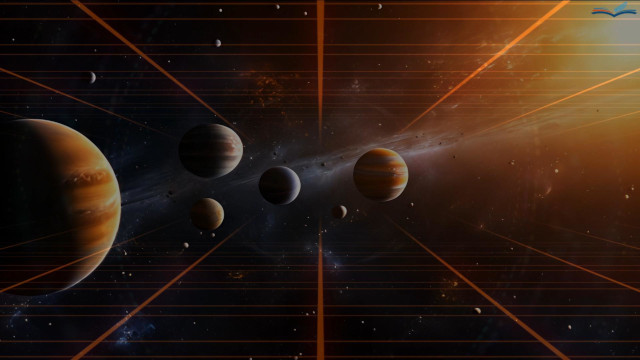
This story is created for the YouTube video with the title "Coincidence in Unimaginable Scales of the Universe".
In our world, a few numbers describe the sizes of the most important objects and phenomena. Among them are the sizes of a proton, DNA, a human, the Moon, the Earth, the Sun, the Solar System, the Galaxy, and the observable Universe - only a dozen numbers. Any coincidences among these numbers should spark interest because the number of possibilities is limited. One cannot dismiss strange events as mere play of chance or numerology without first examining the total number of random occurrences. And for a set of just a dozen numbers, meaningful coincidences typically indicate an underlying fundamental regularity.
Are You Truly Alive if This World is a Simulation?
March 17, 2025 Reading time: 8 minutes

This story was created for the YouTube Video: Are You Truly Alive if This World is a Simulation?
There has been intense public debate about the nature of reality. Some philosophers, like Nick Bostrom, argue that future civilizations will be capable of running computer simulations in such vast numbers that the probability of us existing within one of these simulated universes is extremely high.
According to this hypothesis, our world is akin to a computer game - a simulation of a reality populated by conscious beings. It operates on a computational system that exists outside our perceived universe. This is not merely an abstract idea; multiple pieces of evidence suggest its plausibility.
The Fine Structure of the World — 137
March 12, 2025 Reading time: 7 minutes
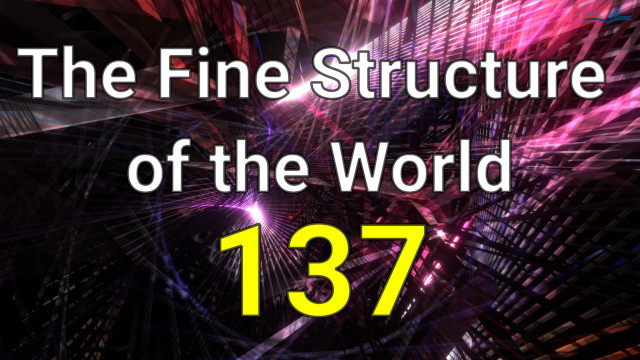
A transcript of the YouTube video story The Fine Structure of the World.
If the universe did not emerge from an infinite chaos of random possibilities, then it must be woven with abstract patterns and intrinsic regularities - faint traces of a grand design. The laws of nature are but glimpses of a deeper blueprint, waiting to be uncovered. And we, beings with consciousness, guided by the same vision that shaped this design, are here to reveal its mysteries.
Sleep and Dreams: The Gates to the Unknown
March 6, 2025 Reading time: 7 minutes
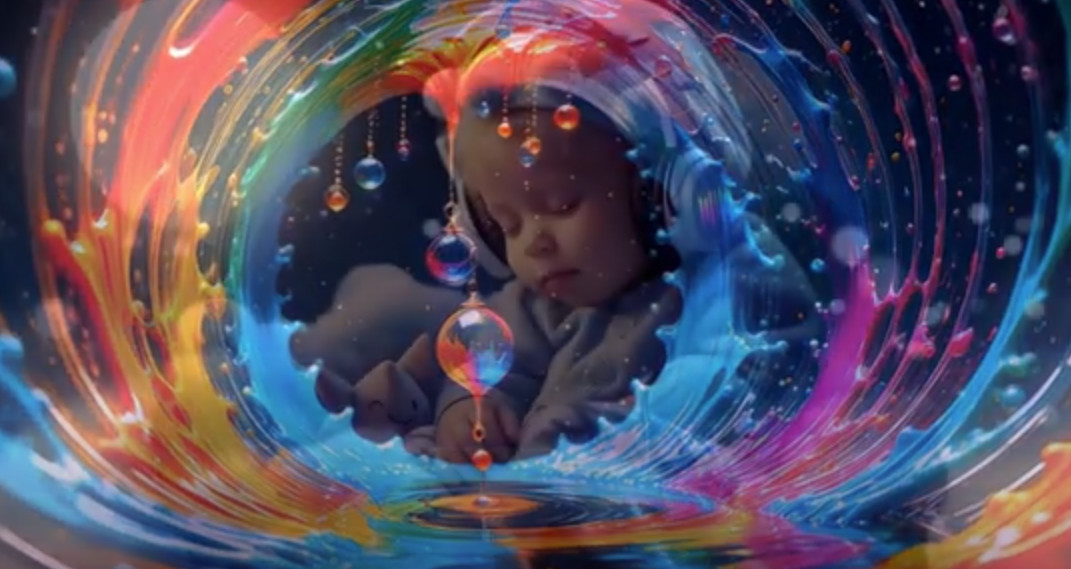
Every day our consciousness "shuts off" for an extended period. We do not see, hear, or feel. It is as if we enter another world. Upon waking, one might ask: Where have I been all this time? And if you wake someone abruptly in the night, they often struggle to recognize which world they are in.
Sleep is so ordinary that we seldom question its true nature. And when we do this, science is here to provide the explanation: Sleep is a time for our body's recovery, a phase for "memory consolidation," during which the brain processes and stabilizes experiences. But is this a complete answer? How can science explain something to which it has no direct access - our inner self?
The Mysterious Pattern Inside the Pi (π) Constant
February 26, 2025 Reading time: 7 minutes
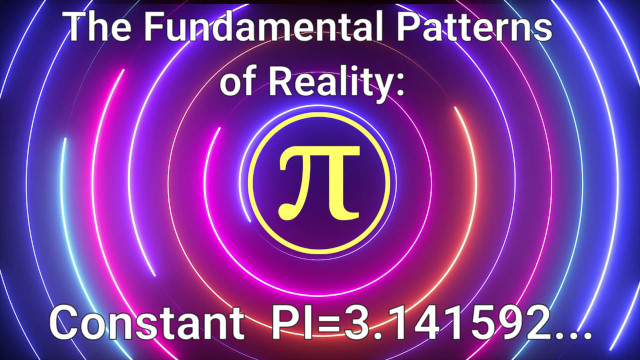
Watch YouTube video based on this story about the constant PI.
The universe around you holds secrets, often hidden within mathematical constants. These constants are so deeply woven into the fabric of existence that we frequently overlook just how extraordinary they truly are.
Consider the ratio of a circle's circumference to its diameter. This ratio is the constant known as π, with a value of approximately 3.14. It is an 'irrational' number, meaning that its decimal representation never ends, nor enters a repeating pattern. This constant cannot be expressed as a simple fraction of two integers. Could there be universes where π is different, say 4? Or perhaps universes where it is not constant at all, but instead a function of the diameter? Why does this world have this particular value of π?
The Hidden Code of the Universe: The Number 6 (six)
February 19, 2025 Reading time: 5 minutes
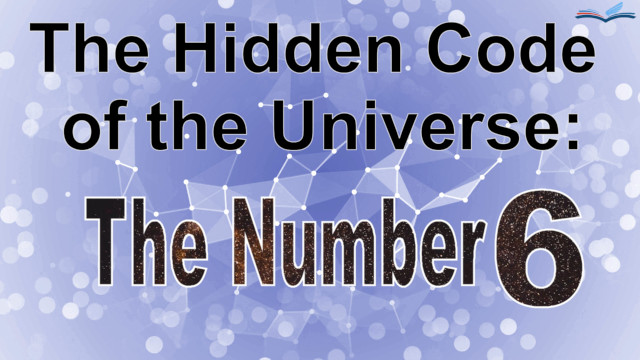
The video story https://youtu.be/ecpH6JcFpfo?si=R9iMuAHZU3vev-ir
By some strange virtue, you find yourself in this universe. It is not only capable of supporting life - allowing you to observe its wonders - but it is also filled with striking coincidences at the very foundation of existence. This world is woven with patterns, regularities, and abstract laws that we discover. All of this points to intricate designs that extend far beyond what is merely necessary for complex life to emerge.
The Universe that Spins on a Tip of a Needle
February 11, 2025 Reading time: 8 minutes
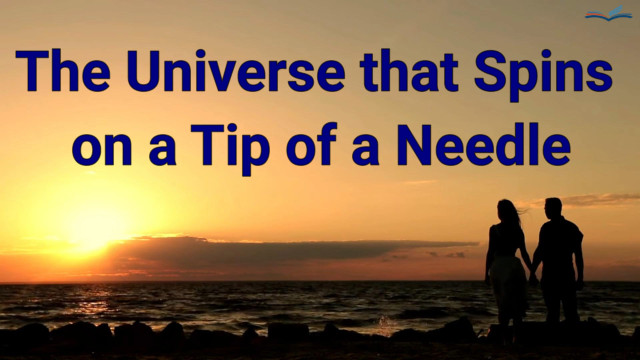
YouTube video https://youtu.be/15TLFPWbt2E?si=aT996qTNywNZvvcT
You are born. You open your eyes, and what you see is this world - light, complexity, and others who care for you. Later in life, you realize one thing: you can exist only in this Universe. All its parameters and laws are precisely tuned for complex life. You may also conclude that this extraordinary fine-tuning is merely an observation bias - you cannot exist in other universes that are hostile to life.
Let's simplify this for you. Imagine this: It is dark. You have no sense of time, no space. You feel nothing. You have no prior memory, only a few basic concepts. Then, all of a sudden, a door slowly begins to open in front of you. The speed at which it opens gives you your first measure of time.
A journey to infinity: Fractals
January 29, 2025 Reading time: 6 minutes
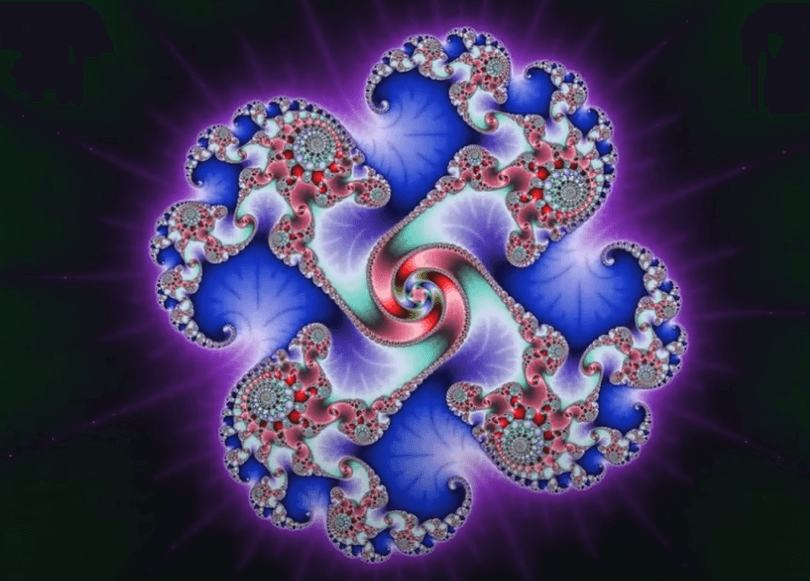
Imagine walking through a terrain that never repeats itself. It is a labyrinth of intricate patterns - mountains, branches, and valleys interwoven in endless complexity. No matter how much you zoom in, the details persist, evolving infinitely without repetition.
Such a journey compels you to ask two profound questions:
- What lies at the end of this road?
- Who or what created all of this?
The answer to the first question might appear simple at first glance. If it is proven - and you believe - that this road stretches infinitely, then every conceivable possibility must eventually arise. Shapes of all kinds will emerge along the way. You might even witness the letters of this story materializing before your eyes - or perhaps something resembling your own face. It is only a matter of time.
About Time
January 3, 2025 Reading time: 4 minutes
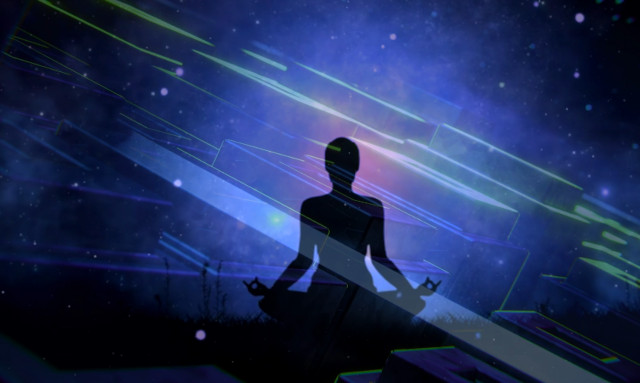
In In the beginning, there was no time, no space. Then, something extraordinary happened. The Big Bang occurred, giving rise to an expanding Universe filled with atoms, molecules, stars, planets, and galaxies.
Time propels us-and everything around us-forward, transforming the present into the past as we move into the future. We comprehend the past through memories and the traces of activity imprinted on material objects.
Have we misunderstood the very nature of existence?
December 26, 2024 Reading time: 8 minutes
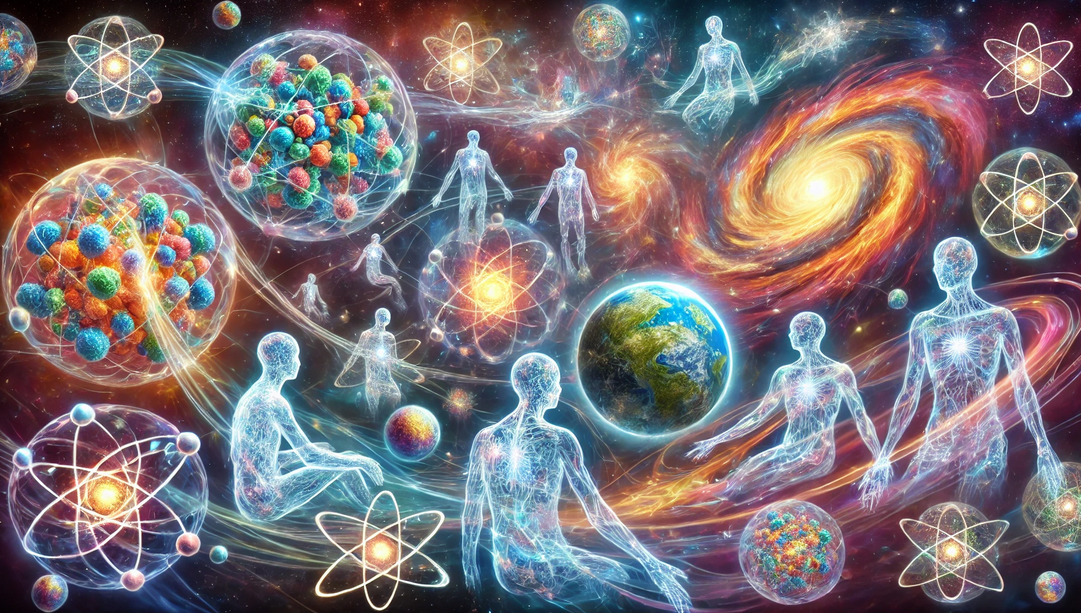
Materialists believe that this world exists independently of us. It consists of atoms, molecules, planets, stars, and galaxies. It just happens that there are billions of humans, who, like other animals, are seen as biological robots. They interact with material objects and one another, moving from place to place. Atop their bodies are computational elements - their brains - which have evolved through natural evolutionary processes as tools for survival. These beings store information within their interconnected cells. When they die, the structured cells that hold the memories of life disappear entirely. New organisms are then born, continuing the biological cycle of reproduction and survival.
But what if this view of the world is completely wrong? What if everything you thought you knew about life and death does not follow this materialistic concept?
The alarming state of the human mindset
December 6, 2024 Reading time: 8 minutes

One of my friends decided to create an educational website. It was a fantastic idea, and I fully encouraged him to pour his heart into the project. However, a lingering question kept nagging me: Are people curious enough to pay attention to this kind of work?
Unfortunately, I was right to worry. The web traffic to his site was so low that he began to feel anxious about what he was doing wrong. Generating a large number of web clicks wasn't the problem - after all, paying Google a few hundred dollars could easily drive traffic. The real issue was that behind these clicks, there were no actual people exploring the content on his website. Essentially, he ended up buying an "army" of internet bots created by the web search company, designed to make him believe his investment was worthwhile.
Unusual coincidences as design patterns pointing to an intelligent influence
November 18, 2024 Reading time: 10 minutes
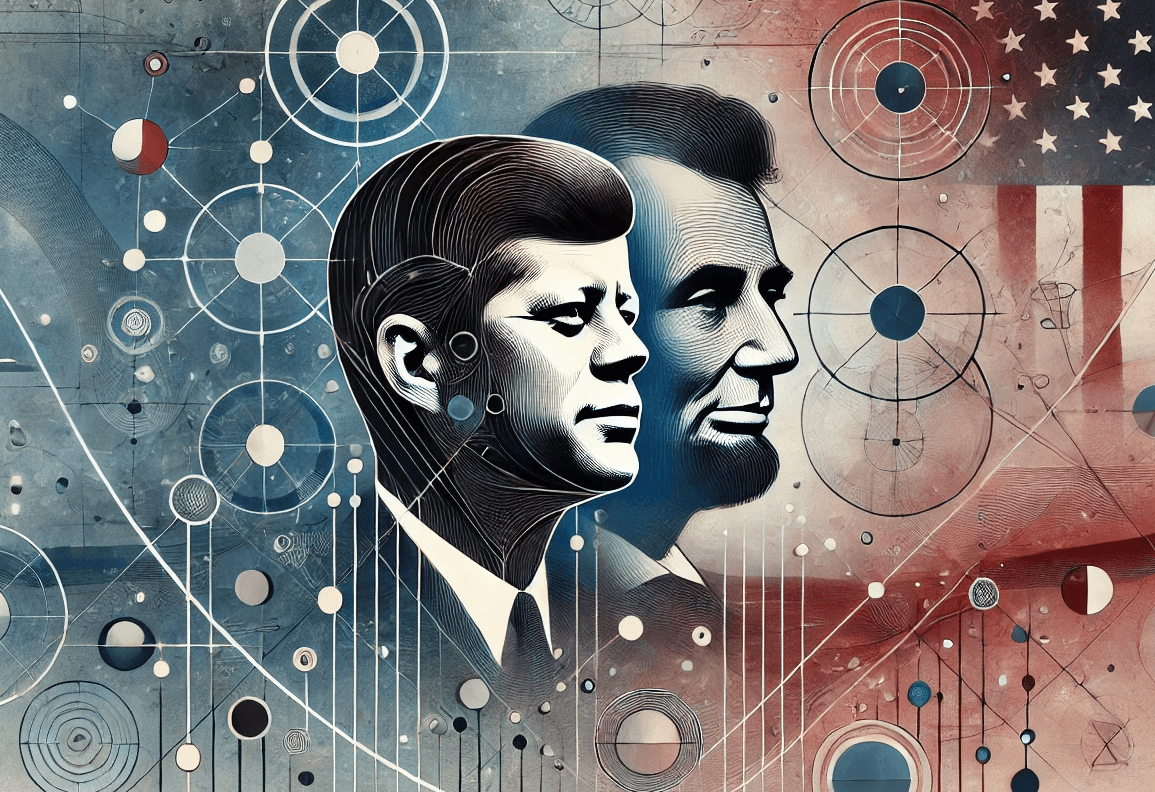
Image: A cascade of coincidences related to JFK and Lincoln assassination
After publishing my book, "The Designed World of Information: Unveiling the Incredible Realm Beyond" [1], several of my colleagues asked me to briefly summarize why I believe that unusual coincidences might offer insights into understanding this world. Indeed, reading a book with over 460 pages is no easy task. So, I decided it would be useful to provide a short summary.
As I mentioned many times in the book, noticing coincidences in people's lives is not particularly unusual. It is simply the law of large numbers. Something is always happening somewhere, and given the sheer number of people, it is perfectly normal to observe coincidences. The effect of coincidences becomes intriguing when one focuses on a small sample of people chosen based on criteria unrelated to coincidences, but who are also connected by meaningful relationships. My book argues that one can build a completely unbiased statistical sample of a group of people, and a simple statistical inference applied to such a group can demonstrate how unlikely certain events are.